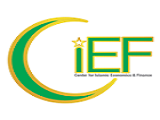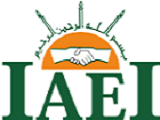Effect Of Capital, Liquidity, Efficiency, Performance On Profitability In Sharia Commercial Banks in Indonesia
Abstract
This research target aims to determine the effect of capital, liquidity, efficiency, banking performance on profitability in Islamic Commercial Banks in Indonesia in 2013-2015. This type of research is quantitative descriptive research. In this study using secondary data, and the period of time used 3 years, namely the period 2013-2015. The sampling technique was purposive sampling. The research variables consisted of 5 variables (4 independent variables and 1 dependent variable). The research data was taken from the 2013-2015 period Islamic financial bank 11 financial statements. Validation of this research data was verified by publishing on each Sharia Commercial Bank website , the website of Bank Indonesia and the website of the Indonesian Central Bureau of Statistics. Data analysis used is Regression analysis to analyze the factors that influence the profitability of Islamic Commercial Banks in Indonesia in 2013-2015. Data analysis method uses Multiple Regression. Hypothesis testing uses F-statistic test (F test), t-statistic test and determination of Ajusted R² coefficient with a significance level of 5%.The results of the study are simultaneous independent variables (F test) that affect the profitability with a significant level of 0,000. While partially (t test) shows that: (1) capital has a positive and significant effect on profitability, (2) liquidity has a positive and significant influence on profitability, (3) efficiency has a negative and significant effect on profitability, (4) performance has a negative and significant influence on the profitability of Islamic Commercial Banks ..
Based on the adjusted R² obtained 0.563 this means that the ability of four independent variables can explain Profitability 56.30% while the remaining 43.70% is explained by other factors.
Keywords: Capital, Liquidity, Efficiency, Performance and Profitability
Full Text:
PDFReferences
Abduh, Muhammad andYameen, Idrees.2013. Determinants of Islamic Banking
Alamsyah, Halim.20 12. Development and Prospects of Islamic Banking
And Financial Reporting, Vol.5, No. 1, p. 75-90
Andi Van Greuning, Hennie and ZamirIqbal.2011. Banking risk analysissharia. Jakarta: Salemba Empat
Banking:Evidence from Bank Muamalat Indonesia. Review of Islamic Commercial Bank Assets Sharia and Sharia Business Unit. Jakarta: Economics, Vol. 11, No. 2, p. 17-29
EU27 banking Systems.Procedia Economics andFinance, Vol. 20, p.518 Evidence from Malaysia and Pakistan. International Journal of Accounting
Hakim, Abdul.2010. Descriptive statistics for economics and business.
Haron, 2004 Competition And Other External Determinants of TheProfitabilitof
Hasan, M. Iqbal. 2002. The main material of research methodology and
Indonesia: Welcoming the 2015 MEA. Delivered in the lecture
Injection injection. http // kontan.co.id / news / modal-three-bank-syariah-need-International Journal of Economics and Financial Issues Vol. 3,
Islamic Bank. Islamic conomicStudie, Vol. 4, No.1, p. 49-64 and Wan
Islamic Banking Institutions' Profitability inMalaysia.World Applied
Izhar, H., and M. Assutay, 2007. Observing the Profitability of Islamic
Jakarta: Erlangga PublisherMankiw, N Gregory. 2003. Macroeconomic
Journal of Finance and Economics, Vol. 1, No.1, p. 1-18
Karim, Adiwarm A.2007. Macroeconomics of Islam. Jakarta: PT Raja Grafindo
Kuncoro,Mudrajad.2006. Strategy how to achieve excellencecompetitive.
London:The banker
Maris Strategies & the Banker.2015. Top Islamic Financial Institution
Marzuki. 2000. Research methodology. Yogyakarta: BPFE-UII
MIEI, 13 April2012, www.bi.go.id
Muda etal.2013. Determinants of Islamic Banking Profitability in Malaysia.
Muhammad.2014. Management of Islamic finance: fiqh and financial analysis.
Naceur, S.B., 2003. The Determinants of the Tunisian Banking Industry
Narbuko,Choliddan AbuAchmadi.2008. Research methodology. Jakarta: Bumi
No.3,2013, p.559-569 Number 16 / POJK.03 / 2014 concerning Assessment of Quality of Nursofiza Wan Azmi. 2004. Determinants of Islam Bank Profitability. Global Obligations Minimum Islamic Commercial Banks. Jakarta: Persada Etc. 2015.Gauging Profitability and Liquidity of Islam Banks:
Petria, Nicolae etal.2015. Determinants of Banks' Profitability:Evidence From Profitability in Malaysia. Australian Journal of Basic and Applied
Profitability: Evidence Panel. University LibredeTunisWorkingpaper.
Sciences Journal12 (Special Issue on BolsteringEconomic Sustainability), p.1-7
Sciences, Vol. 7, No. 2, p. 204-210 Scientific Association of Islamic Economic Experts (IAEI), 8th Anniversary of Script Financial Services Authority.2015. June 2015 Islamic Banking Statistics.Jakarta: Financial Services Authority 2014. Service Authority RegulationFinance contained in the Financial Services Authority Regulation Number 21 / POJK.03 / 2014 concerning Capital Provision
Sinungan, Muchdarsyah.2000. Bank fund management.PT. Earth:JakartaScrip
Smaoui, Houcem and Salah, InesBen.2012. Profitability of IslamicBanks GCCRegion.Global Economy and Finance JournalVol.5, No.1, p.85-102
Sugiyono.2009. Quantitative, qualitative, and R & D research methods. Contents: Alfabeta
Suliyanto. 2011. Business research method. Yogyakarta: the application. Bogor: Ghalia Indonesia Idris, et al. 2011. Determinant of theory. Jakarta: Erlangga
Suryanto, T., Purnamasari, F., & Kurniawan, M. (2018). Tax Revenue and Disparity: How to Improvement Income Inequality in Islamic Perspective. Asian Journal of Social Sciences and Management Studies, 5(2), 65-71.
Vong, AnaP.I., danH.Chan, 2009.Determinants of Bank Profitability in Macao University of Macao Working Paper
Wasiuzzaman, S., danH. Ahmed Tarmizi, 2010. Profitability of Islamic Banking Malaysia: An Empirical Analysis. Journal of Islamic Economics, Banking and Finance, Vol. 6, p. 4, p. 51-68
Winarno, WingWahyu. 2015. Econometric and statistical analysis witheviews. Yogyakarta: UPP STIM YKPN
Yudistira, Galvan.2015. The capital of three Islamic banks needs an
DOI: http://dx.doi.org/10.24042/febi.v3i2.3479
Refbacks
- There are currently no refbacks.
Copyright (c) 2019
Ikonomika : Jurnal Ekonomi dan Bisnis Islam is a Journal of Islamic Economics and Business, Published by the Faculty of Islamic Economics and Business at UIN Raden Intan Lampung Indonesia. This work is licensed under a Creative Commons Attribution-ShareAlike 4.0 International License.






11.png)



.png)
1.png)
.png)
.png)
.png)
2.png)
.png)
.png)
.png)
2.png)
5.png)